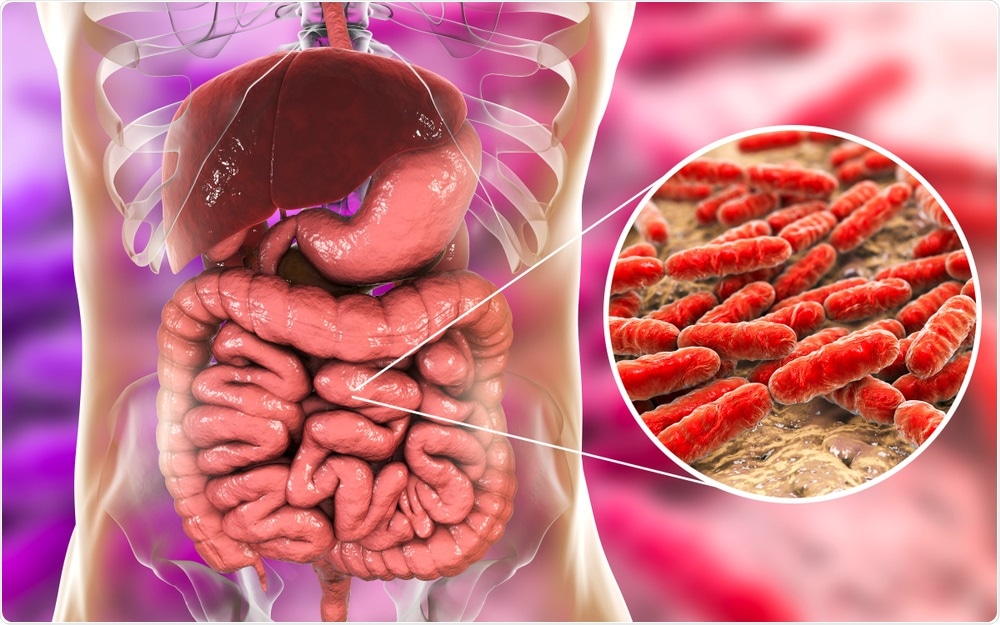The human gut may not be recollected frequently, but it is home to a complex ecosystem of microbes that have a significant role to play in the way human beings function.

Image Credit: Kateryna Kon/Shutterstock.com
The system is known to be fragile—one slight change is enough to cause a significant shift in the microbiome, leading to catastrophic consequences.
When an individual takes an antibiotic, the drug can destroy numerous species of bacteria and disrupt this fragile balance considerably. The common pathogen Clostridioides difficile colonizes a disturbed gut microbiota.
Fecal microbiota transplantation, or FMT, is a procedure in which stool collected from a healthy donor is transplanted into a recipient’s colon. This procedure is effective for treating the recurrent C. difficile infection (rCDI).
Scientists from Brigham and Women’s Hospital investigated how the dynamics of bacterial species may affect the success of the FMT method in treating rCDI.
The scientists have described an algorithm to develop personalized probiotic cocktails for patients who have unhealthy gut microbiomes because of rCDI. The study was recently published in the Nature Communications journal.
Designing a probiotic cocktail is challenging. All of the species in the cocktail interact within a complicated network. When we look at one species that directly inhibits the growth of C. difficile, we must also make sure that it does not indirectly promote growth of C. difficile through interactions with other species in the cocktail.”
Yang-Yu Liu, PhD, Assistant Professor, Department of Medicine, Brigham and Women’s Hospital
The fecal-oral route—the contamination of water or food supply or poor hygiene—is the site of C. difficile transmission; C. difficile infection is found worldwide. While this infection will not usually colonize a healthy colon, it can grow uncontrollably in an antibiotic-disrupted gut.
rCDI does not respond to regular antibiotic drugs and thus can occur again in patients, raising the risk every time. The FMT method has been demonstrated to cure approximately 80% of rCDI cases that did not react to antibiotics.
The scientists started modeling a microbial community and replicating the FMT procedure of treating rCDI. They subsequently predicted the effectiveness of the FMT process at restoring the healthy gut microbiota of the recipient. The scientists then examined real-world data obtained from a mouse model as well as from human patients to confirm the modeling.
With the help of the theoretical model, the researchers predicted the types of factors that establish the efficacy of the FMT method. They found that the efficacy of the FMT method is inversely proportional to the diversity of the species present in the gut microbiome of the infected person.
The researchers also created an optimization algorithm to develop a personalized probiotic cocktail to aid patients suffering from rCDI.
The new algorithm is built on an ecological concept that engineers a cocktail with the least number of bacterial species, while accounting for the complex ecological network of the species.
Personalized probiotic cocktails like these comprise species that effectively inhibit C. difficile and can be given to patients suffering from rCDI to restore their gut microbiota.
We now have an ecological understanding of FMT—why it works and why it sometimes fails for rCDI. We can move forward to better understand the efficacy of FMT and how we can use it to treat other diseases associated with disrupted microbiota, such as IBD, autism and obesity.”
Yang-Yu Liu, PhD, Assistant Professor, Department of Medicine, Brigham and Women’s Hospital
Source:
Journal reference:
Xiao, Y., et al. (2020) An ecological framework to understand the efficacy of fecal microbiota transplantation. Nature Communications. doi.org/10.1038/s41467-020-17180-x.